Maria Hügle
Amortized Q-learning with Model-based Action Proposals for Autonomous Driving on Highways
Dec 06, 2020

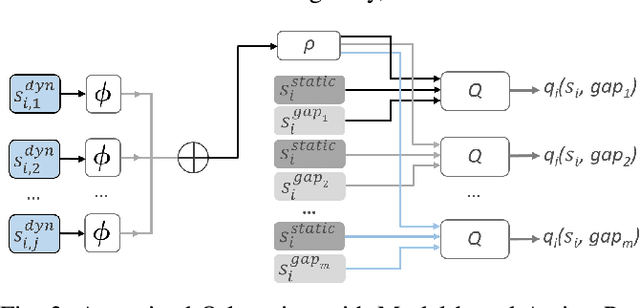
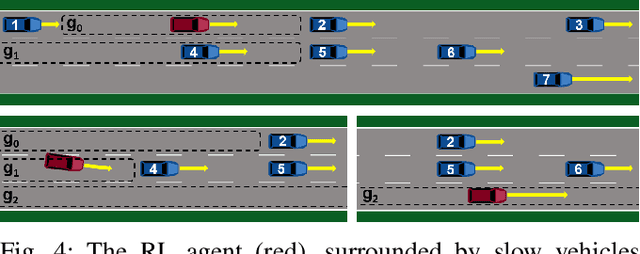
Abstract:Well-established optimization-based methods can guarantee an optimal trajectory for a short optimization horizon, typically no longer than a few seconds. As a result, choosing the optimal trajectory for this short horizon may still result in a sub-optimal long-term solution. At the same time, the resulting short-term trajectories allow for effective, comfortable and provable safe maneuvers in a dynamic traffic environment. In this work, we address the question of how to ensure an optimal long-term driving strategy, while keeping the benefits of classical trajectory planning. We introduce a Reinforcement Learning based approach that coupled with a trajectory planner, learns an optimal long-term decision-making strategy for driving on highways. By online generating locally optimal maneuvers as actions, we balance between the infinite low-level continuous action space, and the limited flexibility of a fixed number of predefined standard lane-change actions. We evaluated our method on realistic scenarios in the open-source traffic simulator SUMO and were able to achieve better performance than the 4 benchmark approaches we compared against, including a random action selecting agent, greedy agent, high-level, discrete actions agent and an IDM-based SUMO-controlled agent.
A Dynamic Deep Neural Network For Multimodal Clinical Data Analysis
Aug 14, 2020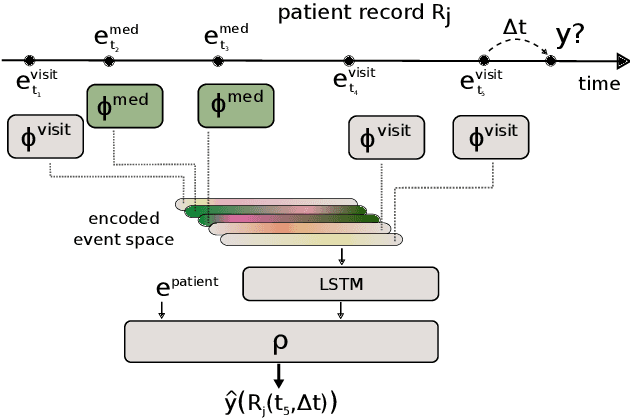
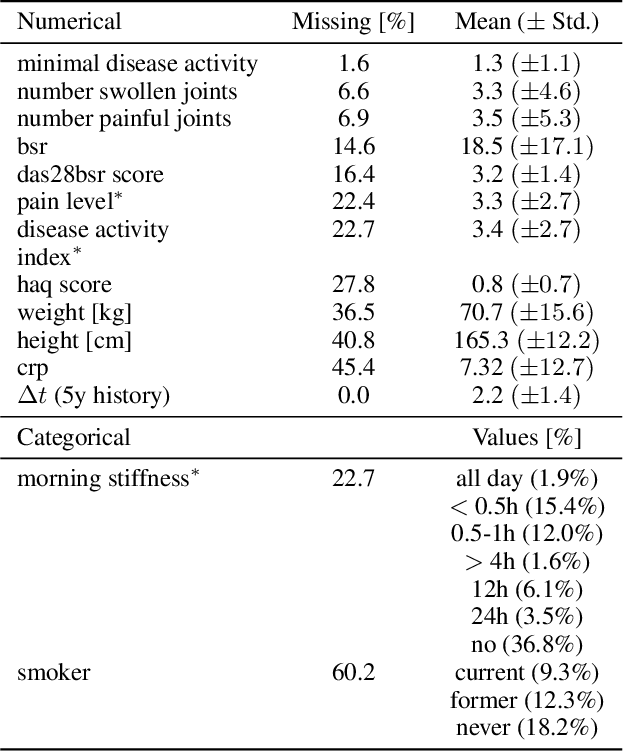
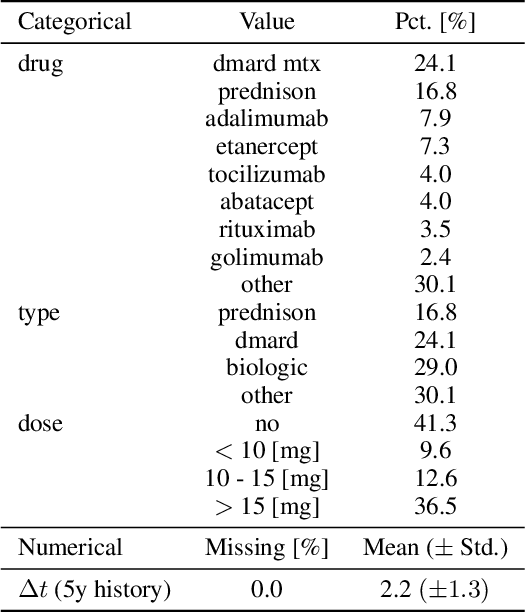
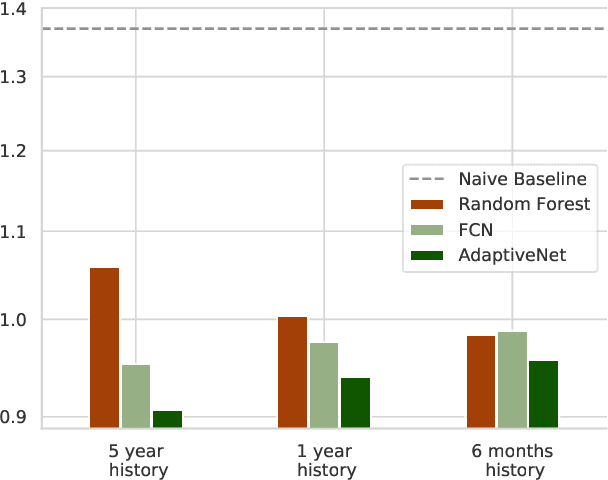
Abstract:Clinical data from electronic medical records, registries or trials provide a large source of information to apply machine learning methods in order to foster precision medicine, e.g. by finding new disease phenotypes or performing individual disease prediction. However, to take full advantage of deep learning methods on clinical data, architectures are necessary that 1) are robust with respect to missing and wrong values, and 2) can deal with highly variable-sized lists and long-term dependencies of individual diagnosis, procedures, measurements and medication prescriptions. In this work, we elaborate limitations of fully-connected neural networks and classical machine learning methods in this context and propose AdaptiveNet, a novel recurrent neural network architecture, which can deal with multiple lists of different events, alleviating the aforementioned limitations. We employ the architecture to the problem of disease progression prediction in rheumatoid arthritis using the Swiss Clinical Quality Management registry, which contains over 10.000 patients and more than 65.000 patient visits. Our proposed approach leads to more compact representations and outperforms the classical baselines.
Early Seizure Detection with an Energy-Efficient Convolutional Neural Network on an Implantable Microcontroller
Jun 12, 2018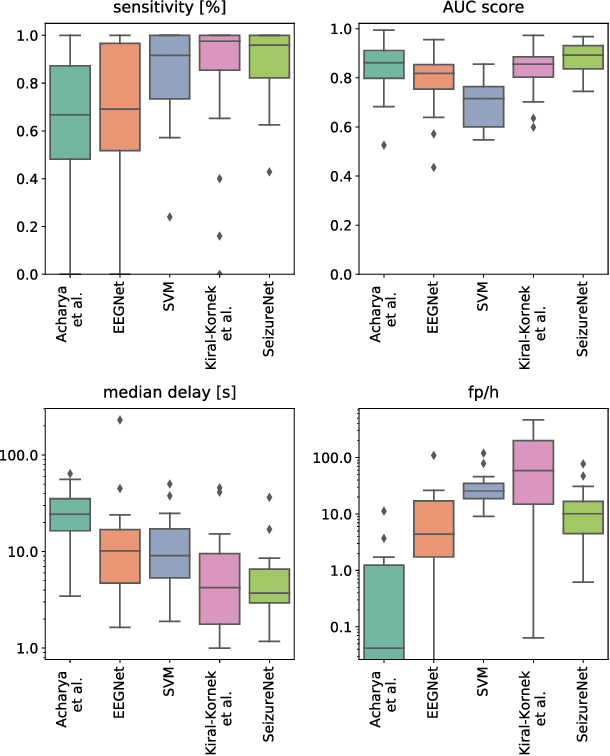

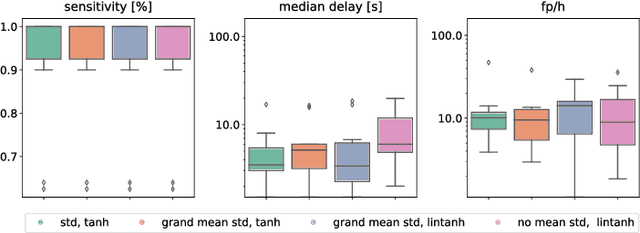
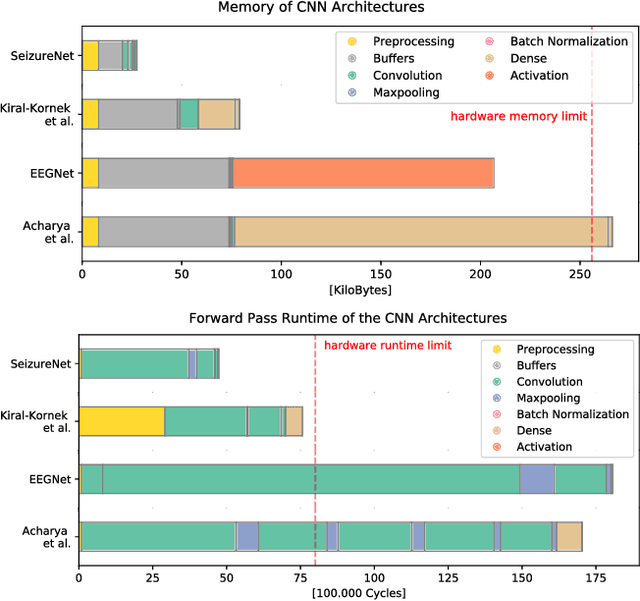
Abstract:Implantable, closed-loop devices for automated early detection and stimulation of epileptic seizures are promising treatment options for patients with severe epilepsy that cannot be treated with traditional means. Most approaches for early seizure detection in the literature are, however, not optimized for implementation on ultra-low power microcontrollers required for long-term implantation. In this paper we present a convolutional neural network for the early detection of seizures from intracranial EEG signals, designed specifically for this purpose. In addition, we investigate approximations to comply with hardware limits while preserving accuracy. We compare our approach to three previously proposed convolutional neural networks and a feature-based SVM classifier with respect to detection accuracy, latency and computational needs. Evaluation is based on a comprehensive database with long-term EEG recordings. The proposed method outperforms the other detectors with a median sensitivity of 0.96, false detection rate of 10.1 per hour and median detection delay of 3.7 seconds, while being the only approach suited to be realized on a low power microcontroller due to its parsimonious use of computational and memory resources.
 Add to Chrome
Add to Chrome Add to Firefox
Add to Firefox Add to Edge
Add to Edge